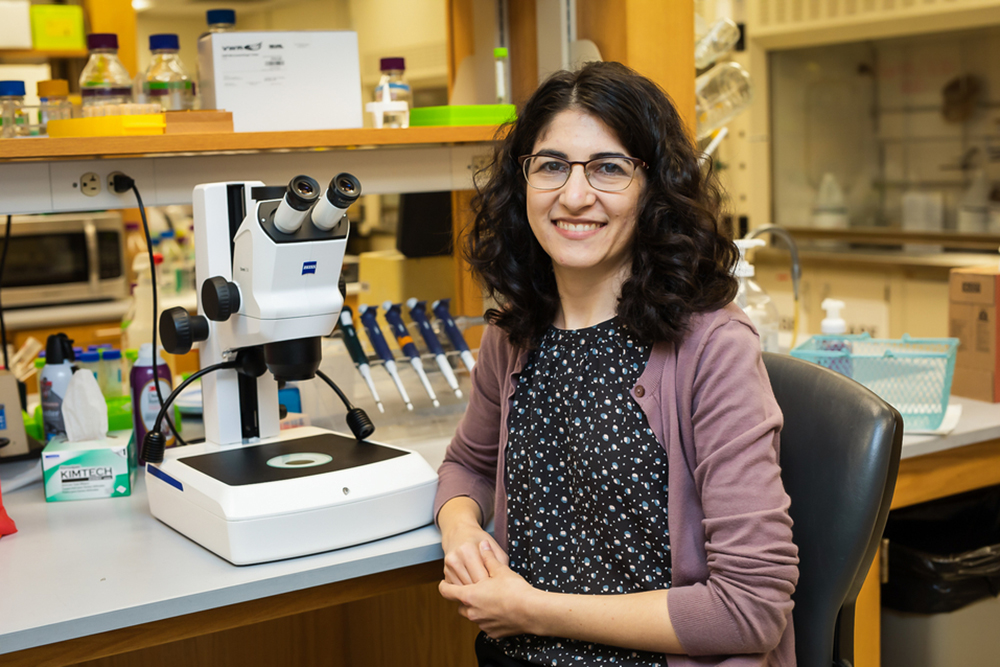
Biochemist Oriana Fisher, assistant professor of chemistry, has received a $1.9 million Maximizing Investigators' Research Award (MIRA) award from the National Institutes of Health (NIH) to explore how bacteria respond and adapt to changes within their environments. This funding will provide support for research in Fisher’s laboratory for five years, which allows for increased flexibility and stability to enrich scientific productivity and enhance the chances for important breakthroughs.
Fisher’s research may have long-term implications for antimicrobial drug development. Antibiotics are meant to kill bacteria and certain fungi, but superbugs have evolved to survive them. The Centers for Disease Control and Prevention (CDC) calls antibiotic resistance “one of the biggest public health challenges of our time.” Each year, about 2.8 million people in the U.S. are infected with antibiotic-resistant bacteria or fungi, resulting in over 48,000 deaths.
“Many essential biochemical processes in bacteria are poorly understood,” Fisher explains. This new grant will fund Fisher’s lab to pursue two primary research directions to shed light on bacterial biochemistry: investigating how these organisms regulate uptake of the essential trace element copper and how different members of a family of bacterial enzymes each catalyze distinct chemical reactions.
“For centuries, people have understood that copper can have antimicrobial effects.” says Fisher. “The primary goal of our research is to focus our efforts on understanding how bacteria control their internal copper levels.” The mechanisms by which copper export occurs have been studied extensively, but relatively little is known about copper import. Fisher theorizes that copper uptake is regulated by copper-dependent transcriptional repressors and the proteins under their control. She and her team are honing in on studying the structures of some of these proteins and how they interact with copper ions to learn more about how they function within bacterial cells.
The second main research area supported by the NIH funding will focus on enzymes involved in bacterial signal transduction pathways. Bacteria can respond to their environment using signal transduction pathways that lead to the regulation of sets of genes by transcription factors, Fisher says. These pathways are comprised of many different enzymes that collaborate to deliver signals from the environment into the cell. It has been suggested that many such proteins from bacteria might be possible new drug targets, but at a molecular level many of them still remain mysterious. Fisher and her team plan to investigate how some of these enzymes recognize their interaction partners and to explore mechanisms by which such pathways could be inhibited.
The team will use a variety of methods to tackle these questions, drawing from the fields of biochemistry, biophysics, bioinorganic chemistry, microbiology, and structural biology. They plan to use the bacterium Bacillus subtilis as their model.
“Bacillus subtilis is a really wonderful tool because we can do things like introduce point mutations directly within the bacteria itself, unlike many species of bacteria where introducing genetic changes can be incredibly difficult. All of the proteins and pathways that we're studying are used by this species, even though versions of them are also employed by many other bacterial species as well. We're hoping that we can take what we learned in this really nice model system and use that information to understand more about how similar processes work in pathogenic bacterial strains.”






